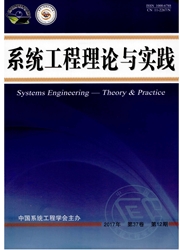

 中文摘要:
中文摘要:
突发事件的发生发展具有高度不确定性,机械的应急管理组织系统缺乏适应性,难以有效应对.基于NK模型,以适应度景观的复杂性和动态性刻画应急管理决策情景的不确定性,研究简单稳态、复杂稳态、简单动态、复杂动态情景下,集权、分权和层级等决策模式的组织系统的适应性特征,以及组织文化、决策者能力、信息流等因素的影响机理.结果表明,简单稳态情景下,应采用分权模式且促进信息共享;复杂稳态情景下,宜保持适度集权;动态情景下,应采用层级模式并加强信息沟通.决策者能力与决策重心相一致,能有效增强组织系统的适应性.当信息流超过决策者能力时,具有合作文化的分权模式适应性较好.研究为中国应急管理体系顶层设计与模式重构提供理论方法.
 英文摘要:
英文摘要:
For lacking of adaptability, emergency management organization with machine bureaucracy is difficult to cope with emergencies with high degree of uncertainty. Based on NK model, this paper depicts the uncertainty of emergency management scenarios with complexity and dynamic of fitness landscape. Specifically, emergency management scenarios are divided into simple-steady state, complex-steady state, simple-dynanfic state, complex-dynamic state, then adaptive of emergency management organization sys- tem and influence mechanism of organizational culture, ability of decision makers and information flow are studied under centralized decision model, decentralized decision model and hierarchy decision model. Results indicate that it's suitable for decentralized decision model and promote information sharing under scenario of simple-steady state. It should be moderately centralized under scenario of complex-steady state and adopt hierarchy under scenario of dynamic state. The adaptability of organization system can be effectively enhanced when decision maker with great ability in the correct position. Organization system with decentralized decision model and collaborative culture has higher adaptability when information flow exceeds decision maker's ability. This study provides theory and method for top-level design and reconstruction of China's emergency management system.
 同期刊论文项目
同期刊论文项目
 同项目期刊论文
同项目期刊论文
 Emergency Management Organizational Structure Optimization Based on Information Transmission Reliabi
Emergency Management Organizational Structure Optimization Based on Information Transmission Reliabi Real-Time Pricing Control on Generation-Side: Optimal Demand-Tracking Model and Information Fusion E
Real-Time Pricing Control on Generation-Side: Optimal Demand-Tracking Model and Information Fusion E 期刊信息
期刊信息
